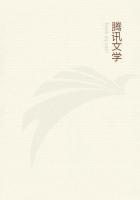Lockhart had used some phrase (it is Lockhart who tells us the story) which conveyed the impression that he suspects poets and novelists of looking at life and at the world chiefly as materials for art. 'A soft and pensive shade came over Scott's face. "I fear you have some very young ideas in your head," he says. "God help us, what a poor world this would be if that were the true doctrine! I have read books enough, and observed and conversed with enough eminent minds in my time, but I assure you I have heard higher sentiments from the lips of poor uneducated men and women, exerting the spirit of severe yet gentle heroism, or speaking their ****** thoughts, than I ever met with out of the pages of the Bible. We shall never learn to feel and respect our real calling unless we have taught ourselves to consider everything as moonshine compared with the education of the heart,"' said the great teacher. 'Maria did not listen to this without some water in her eyes,--her tears are always ready when a generous string is touched,--but she brushed them gaily aside, and said, "You see how it is: Dean Swift said he had written his books in order that people should learn to treat him like a great lord; Sir Walter writes his in order that he might be able to treat his people as a great lord ought to do."'
Years and years afterwards Edward Fitzgerald stayed at Edgeworthstown, and he also carries us there in one of his letters. He had been at college with Mr. Frank Edgeworth, who had succeeded to the estate, and had now in 1828 come to stay with him. The host had been called away, but the guest describes his many hostesses: 'Edgeworth's mother, aged seventy-four; his sister, the great Maria, aged seventy-two; and another cousin or something. All these people were pleasant and kind, the house pleasant, the grounds ditto, a good library, so here I am quite at home, but surely must go to England soon.' One can imagine Fitzgerald sitting in the library with his back to the window and writing his letters and reading his thirty-two sets of novels, while the rain is steadily pouring outside, and the Great Authoress (so he writes her down) as busy as a bee sitting by chattering and ****** a catalogue of her books. 'We talk about Walter Scott, whom she adores, and are merry all day long,' he says. 'When I began this letter I thought I had something to say, but I believe the truth was I had nothing to do.'
Two years later Mr. Fitzgerald is again there and writing to Frederick Tennyson: 'I set sail from Dublin to-morrow night, bearing the heartfelt regrets of all the people of Ireland with me.' Then comes a flash of his kind searching lantern: 'I had a pleasant week with Edgeworth. He farms and is a justice, and goes to sleep on the sofa of evenings. At odd moments he looks into Spinoza and Petrarch. People respect him very much in these parts.' Edward Fitzgerald seems to have had a great regard for his host; the more he knows him the more he cares for him; he describes him 'firing away about the odes of Pindar.' They fired noble broadsides those men of the early Victorian times, and when we listen we still seem to hear their echoes rolling into the far distance. Mr. Fitzgerald ends his letter with a foreboding too soon to be realised: 'Old Miss Edgeworth is wearing away. She has a capital bright soul, which even now shines quite youthfully through her faded carcase.' It was in May 1849 that Maria Edgeworth went to her rest. She died almost suddenly, with no long suffering, in the arms of her faithful friend and step-mother.
NOTES ON 'CASTLE RACKRENT'
In 1799, When Maria was in London, she and her father went to call upon Mr. Johnson, the bookseller, who was then imprisoned in the King's Bench for a publication which was considered to be treasonable, and they probably then and there arranged with him for the publication of CASTLE RACKRENT, for in January 1800, writing to her cousin, Miss Ruxton, Maria says, 'Will you tell me what means you have of getting parcels from London to Arundel, because I wish to send my aunt a few popular tales. . . . We have begged Johnson to send CASTLE RACKRENT, and hope it has reached you. DO NOT MENTION THAT IT IS OURS.'
The second edition of CASTLE RACKRENT came out with Miss Edgeworth's name to it in 1811. 'Its success was so triumphant,'
Mrs. Edgeworth writes,'that some one--I heard his name at the time, but do not now remember it--not only asserted that he was the author, but actually took the trouble to copy out several chapters with corrections and erasions as if it was his original manuscript.'
It was when Miss Edgeworth first came to Ireland,--so she tells one of her correspondents,--that she met the original Thady of CASTLE RACKRENT. His character struck her very much, and the story came into her mind. She purposely added to the agent's age so as to give time for the events to happen.















